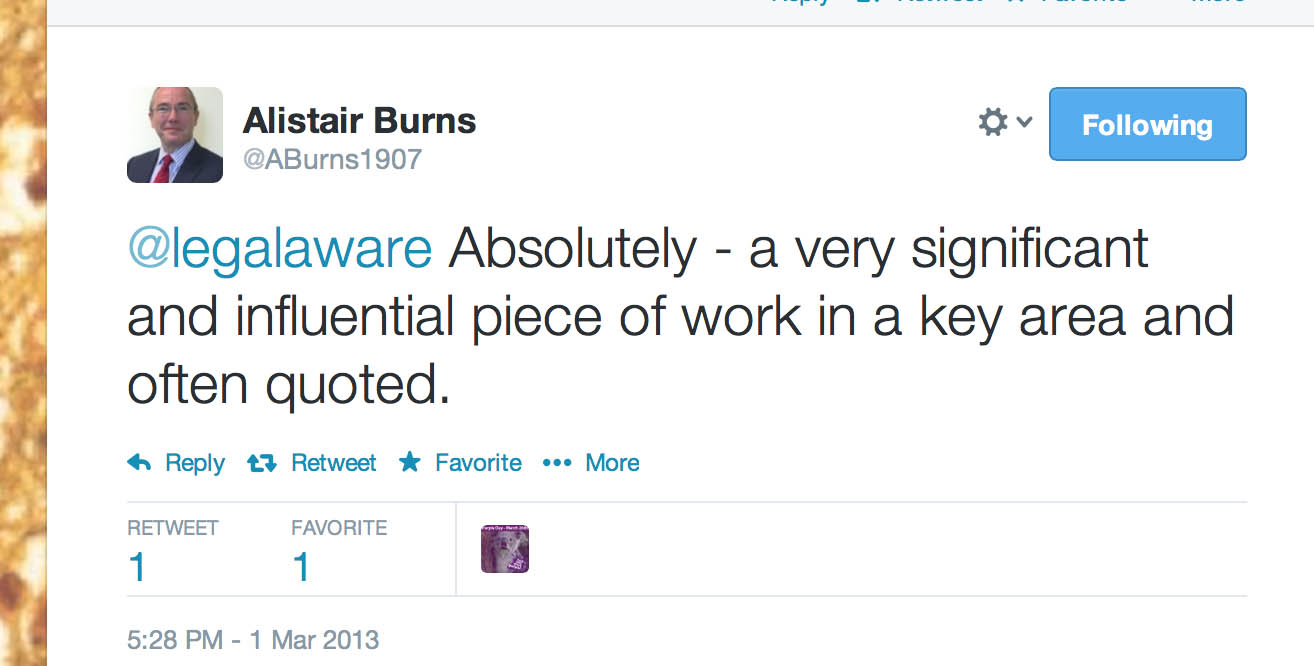A press release on the new Scottish Social Attitudes report about dementia (and caring) was published late yesterday evening.
I found the findings very positive taken as a whole, in relation to the Scottish dementia policy transposing ‘dementia friendly communities’.
However, one of the ‘issues’ that dementia friendly communities as a policy was supposed to address still remains a stubborn problem area.
That is, a very large majority of people (83%) said they ‘agreed’ or ‘agreed strongly’ with the statement that ‘caring for someone with dementia is often very lonely’.
Latest initiatives such as TIDE, “Together in Dementia Everyday”, will be in this context most welcome. Joining up family carers in a support network is a very sensible thing to do, for a whole host of reasons.
Another finding for me was particularly noteworthy, although the findings on stigma continue to be of huge interest to me (especially in the area of employment especially for people with younger onset dementia).
That was, “88% of people thought that the Scottish Government should require banks to have a legal duty to make sure people with dementia get help to manage their finances.”
Any law has to be enforceable, so there are operational questions about how such a civil law would come to effect, taking offences on the civil standard of proof, the ‘balance of probabilities’.
A legal duty for banks to ensure that people with dementia get help to manage their finances assumes that such individuals can be easily identified. The first problem is whether a person with dementia will necessarily know they need help in managing their finances. For example, there will be some people with certain dementias with full capacity who feel they can manage their financial affairs.
On the other hand, there might be certain people with dementia who show a strong risk-taking or impulsive streak, but with full capacity, who are possibly ‘dangerous’ when it comes to managing their finances. It is impossible to offend autonomy for someone with full capacity (otherwise it becomes coercion or at worst assault). There’s currently a strong policy ethos, right I feel, that you can’t ‘wrap people up in cotton wool’ either: you need risk to live better with dementia, as I have long argued.
But, taking an offence into the realms of civil law, would make it easier to find banks culpable, in theory.
This is because the alternative might be a criminal offence, and that would have to be ascertained ‘beyond reasonable doubt’. We already know from the work of the Serious Fraud Office on how difficult it can be to make prosecutions using this level of proof.
The offences under the Fraud Act (2006) which would fall under this realm are not clear cut either: most lawyers feel the actual offences would be fraud by false representation, fraud by failure to disclose or fraud by abuse of position, but we have very little case law on this. We would have to revert to the original Law Commission guidance on the intent of the Fraud Act (2006), and the concomitant parliamentary discussions by the legislature behind the purpose of the Act.
The duty from the bank, however, could be legislated for as an extension of existant civil legislation, such as the Theft Act (1968), or could be a completely new stand alone statutory instrument.
And is the bank the correct defendant anyway? The experience of the Care Act in England has kept personal budgets in the limelight, with interest in safeguarding aspects. If more people take control of their own individual budgets, should the accountability for this budget transfer, from say a bank, to the holder of a personal budget or some appointed proxy?
Such a duty is an example of a ‘rights based approach’, further advancing the notion of people with dementia having enforceable rights. But there is a valid question here as to why this cannot be done under current legislation: in other words, why could a duty not be enforced under the obligation of reasonable adjustments under the Equality Act? It does not matter that banks are clearly doing a public function?
The report on social attitudes is undoubtedly welcome, and further strengthens the need for the ‘8 pillars of community support’ in the Scottish jurisdiction.


